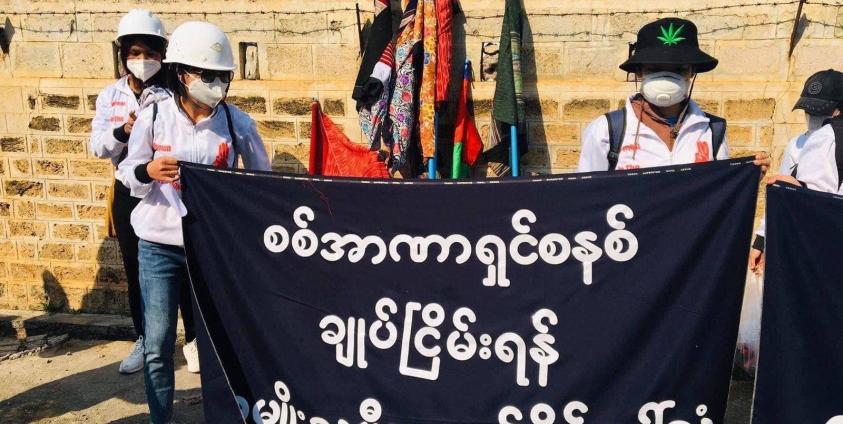Gender inequality is deeply rooted in Burma, says Moo Angler, Secretary 1 of the Kayan Women Organisation (KWO), and these kinds of conservative views that value women as less than men are responsible for gender-based violence.
She and other women held a 16-day campaign from 25 November to 10 December to raise awareness, which coincided with the International Day for the Elimination of Violence Against Women.
According to Moo Angler, the idea that women aren’t as important as men has been deeply ingrained in society in the Southeast Asian country for a long time, which is why it's so difficult to change.
Hnin Hnin Mwe, joint general secretary of the Democratic Party for a New Society, commented: “People teach their children to respect their son and husband as if they were superiors or gods, and this has become a tradition in our society. Probably this mindset has led to women being seen as second-class citizens.”
Violence against women can include physical, psychological, economic and sexual violence against women at home or at work, they said. To eradicate it so that women have the same rights as men, both men and women and the government must support measures that promote and defend women’s rights.
“At the beginning of the Spring Revolution, women launched the “Our Sarong, Our Flag, Our Victory” campaign, in which many men participated by wearing a women’s sarong (dress) on their heads,” says Hnin Hnin Mwe.
If men continue to support these kinds of initiatives in the future, she said they can start to eliminate sexism from their society.
The Women’s League of Burma (WLB) participated in the campaign by launching a white ribbon campaign and using the slogans justice, responsibility and the end of impunity.
A WLB statement pointed out that the military systematically uses rape as a weapon in its war against the people, but soldiers are not punished for sexual violence against women and children.







